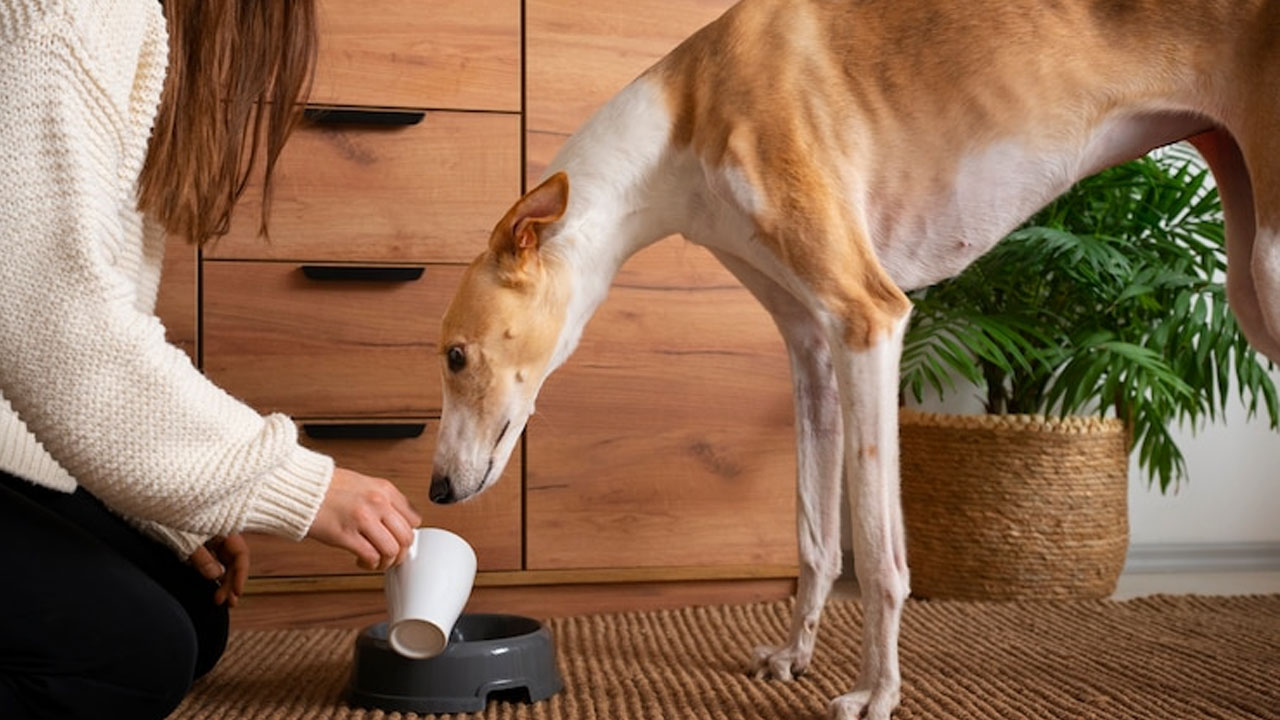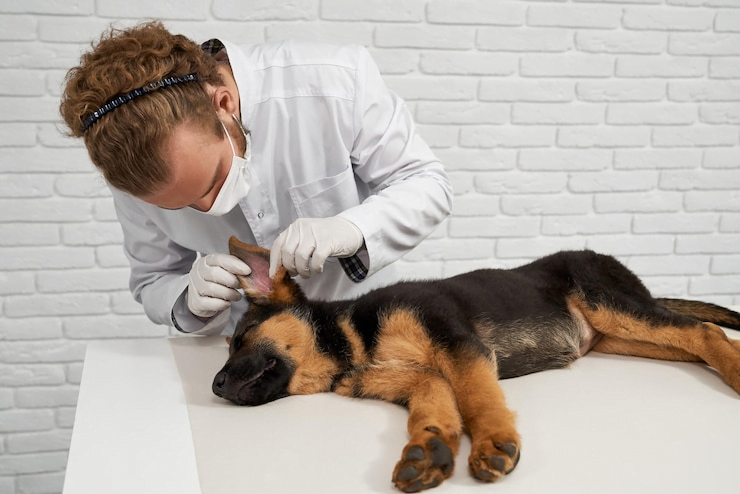Ever notice your furry friend shaking his head more than usual? If you’re wondering, “Why does my dog keep shaking his head?” you’re not alone. This behavior can be puzzling and worrying for many pet owners. While an occasional shake is normal, frequent head shaking could indicate an underlying problem that needs attention.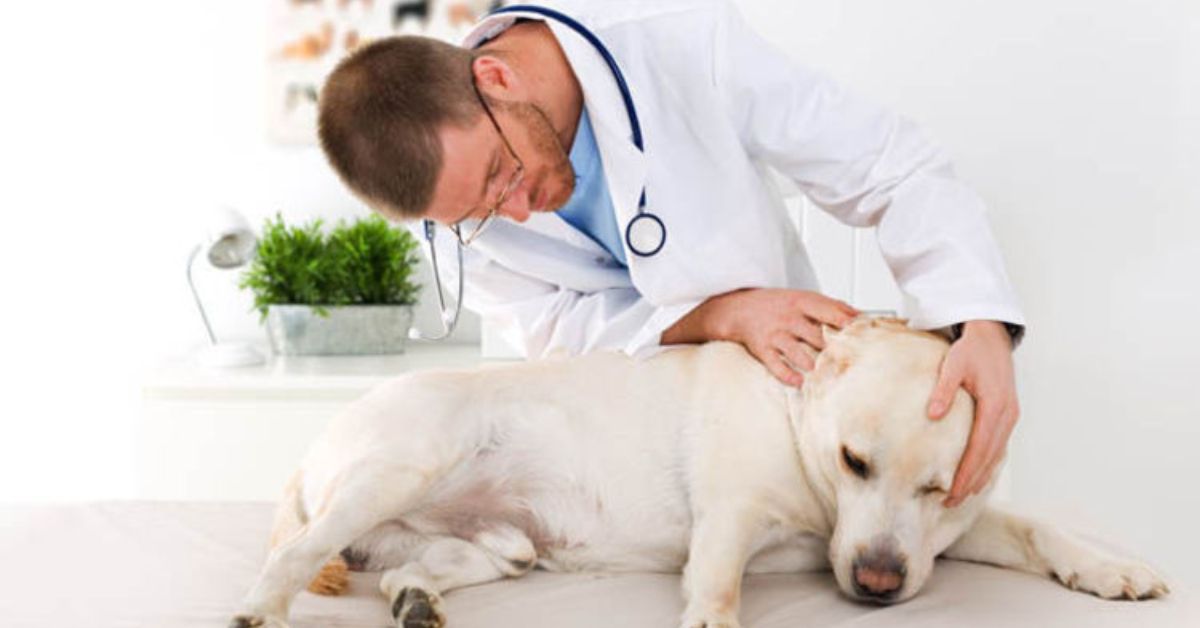
In this blog post, we’ll explore the various reasons dogs shake their heads and offer practical advice for addressing this problem. By understanding the potential causes and treatments, you’ll be better equipped to help your canine companion stay comfortable and healthy.
Why Does My Dog Keep Shaking His Head?
If your dog keeps shaking his head persistently, it can be both puzzling and concerning. This behavior is not uncommon and can be caused by various underlying issues. While an occasional head shake might simply indicate a dog trying to dislodge an irritant like water after a swim, frequent shaking often signals something more serious that requires your attention.
Potential causes range from ear infections and mites to allergies and foreign objects lodged in the ear canal. Understanding why your dog is exhibiting this behavior is essential for ensuring his comfort and health, and in some cases, may necessitate a visit to the veterinarian.
The Reasons Behind Head Shaking
Head shaking is a natural response for dogs to relieve discomfort or irritation in their ears. It can also serve as a way to communicate and express emotions. However, excessive head shaking could indicate something more serious, such as: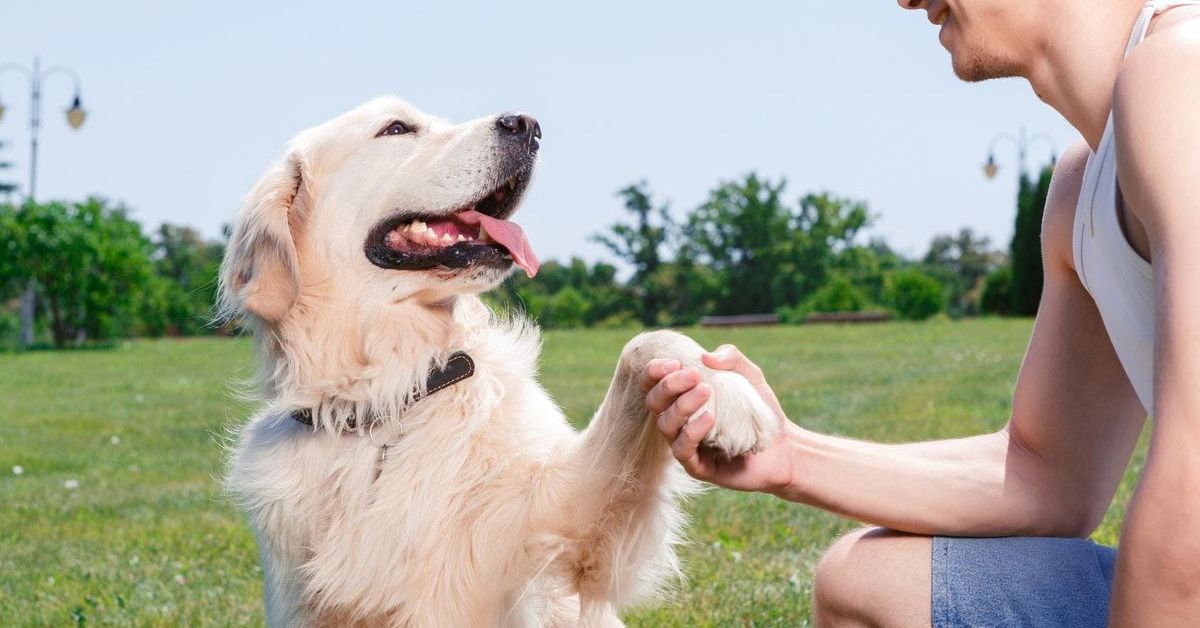
Clean Ears But Still Shaking: Other Possible Causes
Sometimes, even if your dog’s ears appear clean, they might still shake their head often. There are several reasons why this could happen:
- Irritation from Allergies: Dogs can develop allergies to various environmental factors such as pollen, dust, or certain food ingredients. These allergies can cause itching and irritation in the ears, leading to head shaking.
- Foreign Objects: Small objects like grass seeds or insects can get lodged in your dog’s ear canal, causing discomfort and prompting them to shake their head in an attempt to dislodge the irritant.
- Ear Polyps or Tumors: Although less common, growths in the ear can cause discomfort and lead to head shaking. These require professional evaluation and treatment.
Nighttime Head Shaking: Does It Signal an Issue?
Head shaking at night can be particularly concerning for pet owners. Here’s why it might be happening:
- Ear Infections: Ear infections can cause significant discomfort, which might become more noticeable when your dog is lying down or trying to sleep. Look for other signs like redness, swelling, or discharge from the ear.
- Anxiety or Stress: Some dogs may shake their heads due to anxiety or stress, especially if there have been recent changes in their environment or routine. Observing your dog’s overall behavior can help determine if stress is a factor.
- Temperature Changes: When temperatures drop at night, your dog might shake their head as a response to the cold. Ensure their sleeping area is warm and comfortable.
Head Tilt and Seizure-like Shaking: Should You Worry?
A head tilt or seizure-like shaking can be alarming. While not always serious, these symptoms should never be ignored:
- Vestibular Disease: This condition affects the inner ear and balance, causing a head tilt and unsteady movements. It’s more common in older dogs and usually requires veterinary treatment.
- Neurological Issues: Seizure-like head shaking can be a sign of neurological disorders. If you notice this behavior, consult a veterinarian immediately for a thorough examination and diagnosis.
- Ear Inflammation: Severe ear inflammation can lead to a head tilt due to discomfort. This often accompanies infection and requires prompt treatment.
Home Remedies vs. Professional Treatment
If your dog is shaking their head occasionally and appears otherwise healthy, you could try some home remedies. These include:
Safe Home Care Tips for Mild Cases
For mild cases of head shaking, you can try some home remedies before seeking professional help:
- Ear Cleaning: Regularly clean your dog’s ears with a vet-approved solution to prevent the build-up of wax and debris. Avoid using cotton swabs as they can push debris further into the ear canal.
- Allergy Management: If you suspect allergies, try to identify and eliminate the allergen from your dog’s environment. Consulting with a vet can help you pinpoint the exact cause and recommend antihistamines.
- Hydration and Hygiene: Ensure your dog stays hydrated and maintains good hygiene. Bathing your dog regularly can help minimize allergens and irritants that affect their ears.
When to Seek Veterinary Help?
While home care can be effective for minor issues, certain situations warrant a visit to the vet:
- Persistent Head Shaking: If your dog’s head shaking persists for more than a day or two, it’s crucial to seek veterinary advice to rule out serious conditions.
- Visible Symptoms: Redness, swelling, discharge, or foul odors from the ear are clear signs of infection or other underlying issues that require professional treatment.
- Behavioral Changes: Noticeable changes in your dog’s behavior, such as lethargy, loss of appetite, or signs of pain, indicate that it’s time to consult a vet.
Diagnostic Steps a Vet Might Take
When you bring your dog to the vet for head shaking, they will perform a thorough examination and might take some of the following steps: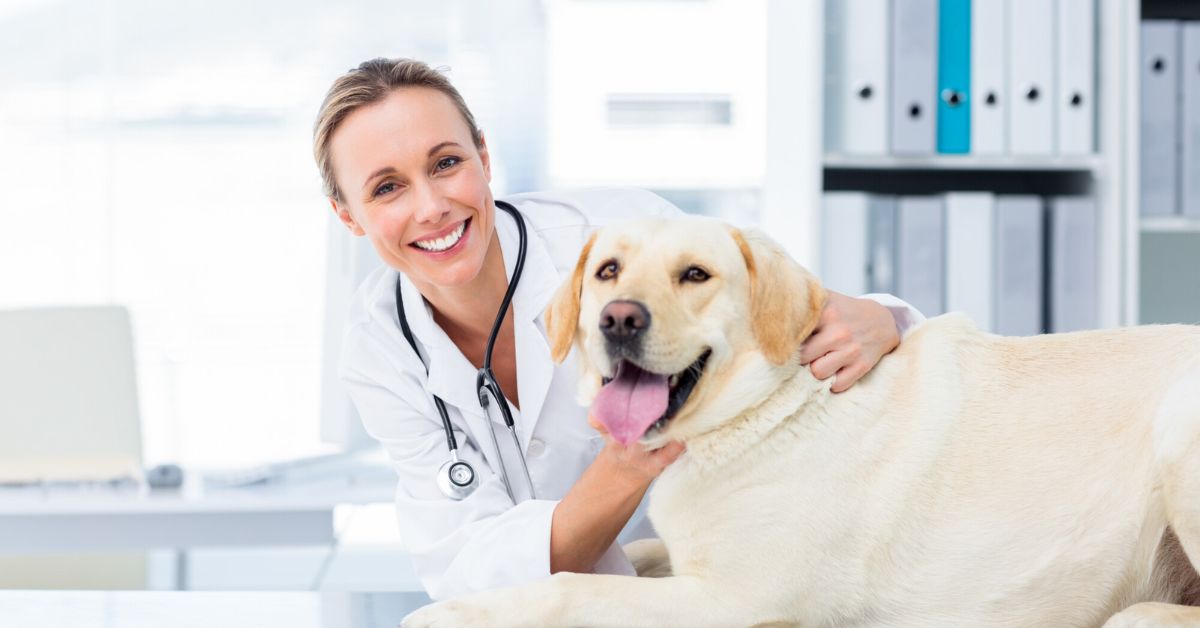
Ear Examination and Testing for Ear Mites
When you take your dog to the vet, they will likely start with a thorough ear examination:
- Otoscope Examination: Using an otoscope, the vet can look deep into your dog’s ear canal to check for infections, foreign objects, or growths.
- Ear Swab: A swab of the ear canal might be taken to identify the presence of bacteria, yeast, or ear mites. This will help in diagnosing the exact cause of the discomfort.
Assessing for Allergies and Infections
Allergies and infections are common culprits behind head shaking. The vet may:
- Skin Tests: Allergy testing can help identify specific allergens affecting your dog. Treatment may include dietary changes or medication.
- Infection Diagnosis: If an infection is suspected, the vet will prescribe appropriate antibiotics or antifungal treatments to clear it up.
Neurological Examinations for Nervous System Disorders
If neurological issues are suspected, the vet might conduct additional tests:
- Neurological Exam: This involves assessing your dog’s reflexes, coordination, and overall neurological function to identify potential problems.
- Advanced Imaging: In some cases, MRI or CT scans may be required to get a detailed view of your dog’s brain and inner ear structures.
Conclusion
Importance of Timely and Accurate Treatment
Timely intervention is crucial for addressing head shaking in dogs. Left untreated, minor issues can escalate into serious health problems. By understanding the potential causes and seeking appropriate care, you can ensure your dog remains healthy and comfortable.
Signs to Watch for and When to Visit the Vet
Keep an eye on symptoms like persistent head shaking, visible ear discomfort, or changes in behavior. If you notice any of these signs, don’t hesitate to consult your vet for expert advice and treatment.
Tips for Preventing Ear-Related Issues in Dogs
Prevention is always better than cure. Regular ear cleaning, managing allergies, and maintaining good hygiene can go a long way in keeping your dog’s ears healthy.
Encouragement to Share Experiences and Seek Advice
If you’ve faced similar issues with your dog, sharing your experiences can help fellow pet owners. Don’t hesitate to seek advice from professionals and the pet-owning community for added support and insights.
FAQ
What should I do if my dog keeps shaking his head but his ears are clean?
Even if your dog’s ears appear clean, they might still be irritated due to allergies, foreign objects, or ear polyps. It’s best to consult your vet for a thorough examination.
Can I use over-the-counter ear drops for my dog?
It’s advisable to consult your vet before using any over-the-counter products. Some ear conditions require specific treatments, and using the wrong product could worsen the situation.
How often should I clean my dog’s ears?
Regular cleaning, about once a week, is recommended. However, the frequency may vary based on your dog’s breed, ear shape, and activities.



